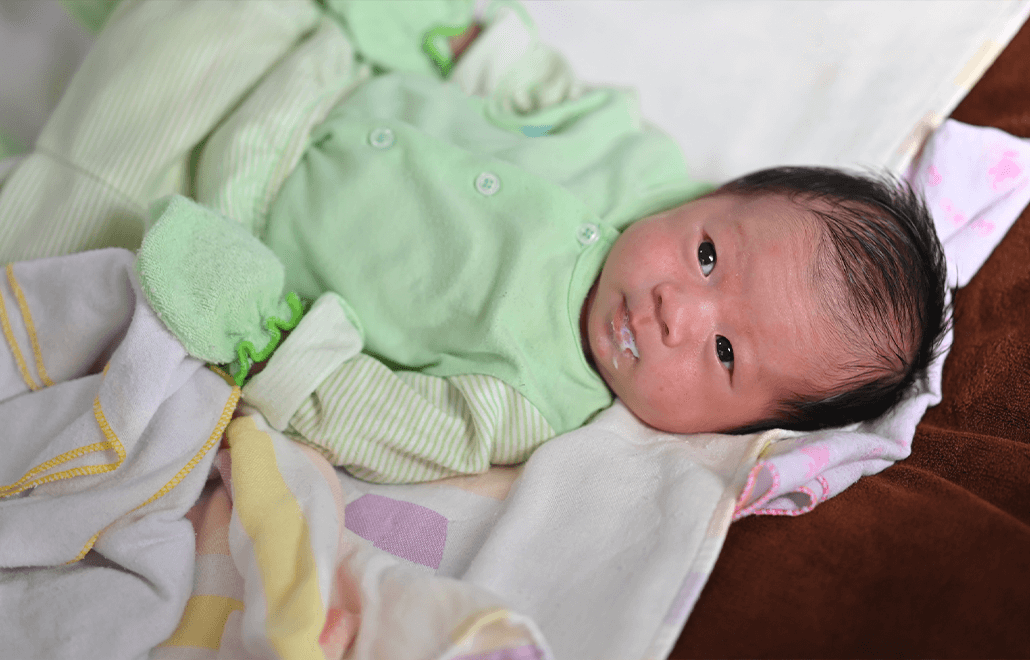
16 Aug What Should I Do If My Baby Spits Up While Sleeping?
2 min. readOne of the common concerns among parents is when their baby spits up during sleep. While it can be alarming to see your little one wake up with a spit-up, it’s usually not a cause for major concern. Spit-up is a common occurrence in infants and typically happens when babies have difficulty digesting milk or formula.
Why Does Spit-Up Happen?
Spit-up occurs when the contents of the baby’s stomach, typically milk or formula, flow back up into the esophagus and sometimes out of the mouth. This happens because the valve between the stomach and the esophagus, known as the lower esophageal sphincter, is still developing in infants. As a result, the contents of the stomach can easily come back up.
When Does Spit-Up Usually Occur?
Spit-up often happens during or shortly after feeding. However, it can also occur during sleep, especially if the baby lies down soon after feeding. Babies who are particularly full, have swallowed air during feeding, or have a sensitive stomach may be more prone to spitting up.
What To Do If Your Baby Spits Up While Sleeping
- Monitor Your Baby: If your baby spits up while sleeping, it’s essential to monitor them closely. Check if they are breathing comfortably and if the spit-up has caused any distress.
- Adjust Sleeping Position: Consider adjusting your baby’s sleeping position to help reduce the likelihood of spit-up during sleep. Placing your baby on their back to sleep is recommended to reduce the risk of Sudden Infant Death Syndrome (SIDS). However, you can elevate the head of the crib slightly with a firm wedge or pillow under the mattress (never directly under the baby) to help keep their head higher than their stomach.
- Burping Techniques: Proper burping after feeding can help reduce the amount of air swallowed, which can contribute to spit-up. Try to burp your baby gently during and after feeding sessions.
- Feeding Techniques: Adjusting feeding techniques can also help reduce spit-up. Ensure that your baby is positioned properly during feeding, with their head slightly elevated. Avoid overfeeding and allow your baby to feed at their own pace.
- Consult Your Pediatrician: If your baby is spitting up excessively, seems uncomfortable, or is not gaining weight properly, consult your pediatrician. They can assess whether there’s an underlying issue such as gastroesophageal reflux (GER) or allergies that may be causing frequent spit-ups.
While spit-up during sleep can be unsettling for parents, it’s usually a normal part of infant development. By understanding the causes and taking appropriate steps to minimize spit-up, you can help ensure your baby sleeps comfortably and safely. Always consult your pediatrician if you have concerns about your baby’s spit-up or if you notice any other unusual symptoms.

